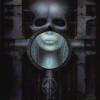
The requested 90mm caliber was the highest possible while allowing a manual reload (beyond, the shell became too heavy for human arms). The "90mm T2" was standardized in 1940 as the 90mm M1. The production had reached 2000 examples by February of 1942 and the 90mm gun could become the standard US heavy antiaircraft gun during the war. It left the assembly lines at a pace of several thousands a month.
Although it was not as good as its German and British counterparts, it proved a good weapon, especially when it was used in conjunction with radars and proximity fuse. It was the heaviest US antiaircraft gun to be used outside the American hemisphere. It was used at the divisional level and aslo contributed to the defense of strategic locations, among others Antwerp, attacked by V 1 in the fall of 1944. The most common variant was the 90mm M1A1, standardized in 1941
Caliber: 90 mm L/50
Length with the carriage: 9.01 meters
Length: 4.50 meters
Width: 4.16 meters
Height: 3.07 meters
Weight of the projectile: 10.61 kg
Muzzle velocity: 762 meters per second
Ceiling: 12040 meters
British Bofors 40mm

On April 23, 1937 fell the British decision to buy license to build the Swedish antiaircraft guns, which made the reputation of Aktiebolaget Bofors. The weapon was the best in its category and it proved a good alternative to the 2-pounder AA of the same caliber. The British built the Bofors during the whole of the conflict, with almost no alterations compared to the original model, except for its integration in the British antiaircraft defense system. The Royal Navy, even if it was slower to replace its pom pom, finally adopted the weapon too.
Caliber: 40 mm L/56.25
Barrel weight: 438.18 kg
Length: 2.25 meters
Weight of the projectile: 0.91 kg
Muzzle velocity: 823 meters per second
Range: 9 871 meters
Ceiling: 7193 meters
Russian 61-K 37mm Model 1939
Designed in 1938-1939 at the factory No.8 under the factory designation of ZIK-37. The gun's chief competitor was considered to be the Bofors 40mm gun. According to the joint tests conducted in 1940, it was determined that the Bofors did not possess any advantages over our gun in main parameters. The ammunition load consisted of UOR-167 fragmentation tracer rounds and UBR-167 armor piercing rounds.
Caliber: 37 mm
Barrel weight: 2100 kg
Length: 2.25 meters
Weight of the projectile: ?
Muzzle velocity: 880 meters per second
Range: 4000 meters
Ceiling: ?
German 88mm Flak 37/41

First of the lineage of the famous German 88 mm antiaircraft cannons. Its development started in 1931, when the engineers of Krupp, loaned to the Swedish company Bofors to evade the provisions of the Versailles Treaty, came back to Essen. The new weapon was sturdy, reliable and easy to build. It entered service in the German Army in 1933 and first saw combat during the Spanish Civil War.
The flak 37/41 was the continuation of the evolution of the 88mm Flak 18 via the 88mm Flak 36, of which it loaned some improvements and added a better fire control system against aircraft, lengthened barrel and a muzzle brake Like its two predecessors, it was the backbone of the antiaircraft defense of the Reich during most of the war and had furhtermore an active antitank career in the first years of the war.
Caliber: 88 mm
Length: 7 meters
Weight of the projectile: 9.07 kg
Muzzle velocity: 1000 meters per second
Range: 19800 meters
Ceiling: 14700 meters
Italian Cannone da 90/53

Of all the anti-aircraft guns in service with Italy from 1941-1943, none was better than the Cannone da 90/53. It was an excellent weapon that could stand comparison with any of its contemporaries and it was a good, sound and modern design. The Cannone da 90/53 was built and designed by Ansaldo and the first examples were produced in 1939, with production being authorized in three main versions. The most numerous version was supposed to be the modello 41P intended for static emplacement only with 1087 guns of this version being ordered.
The Italians used the 90/53 as a multi-purpose weapon on occasion, but some were emplaced as dual-purpose anti- aircraft/coast defense weapons. At times they were used as long-range field guns and the performance of the gun was such that it could match the 88 as an anti-armor weapon. Numbers of the gun were also diverted to the Italian Navy. The Germans valued the 90/53 so highly that following the Italian surrender in July 1943, they impressed as many of the 90/53s as they could find and sent many of them back to Germany for defense of the Reich as the 9-cm Flak 41(i), although the official designation was the 9-cm Flak 309/l. By December 1944, 315 such guns are mentioned in German records, though many were emplaced in Northern Italy. The Allies too captured many 90/53s in their march north and used them for the coast defense role with British coastal batteries around the main Italian captured ports.
Caliber: 90 mm
Length: 4376 meters
Weight of the projectile: 10.33 kg
Muzzle velocity: 836 meters per second
Range: ?
Ceiling: 12000 meters
Japanese 120mm Type 3
Heavy antiaircraft gun developed by the Japanese Navy towards the end of the war. This AA was developed in order to protect the major cities in Japan proper from the air raid. It was deployed at cities by small numbers.
Caliber: 120 mm
Length: 6.71 meters
Weight of the projectile: 23.4 kg
Muzzle velocity: 20500 meters
Range: 20500
Ceiling: 14000 meters




 This topic is locked
This topic is locked














